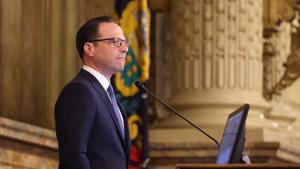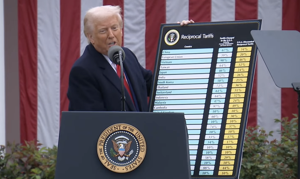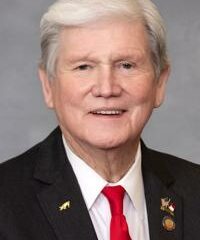(The Center Square) – Contributions to the Public Employees’ Retirement System of Mississippi, and authority of appointment to its governing board, will remain intact.
A proposal for changes to each has died in a state Senate committee.
This means the employer contribution – or, money from taxpayers – remains 17.4% rather than increasing to 22.4% of payroll phased in over three years. The system’s 11-member Board of Trustees passed it last year.
House Bill 1590, authored by Rep. Hank Zuber, R-Ocean Springs, proposed four appointments by the governor and three by the lieutenant governor. It remains primarily voted on by the plan’s beneficiaries after not advancing from the Government Structure Committee of the Senate.
Sen. Chris Johnson, R-Hattiesburg, said thousands of system members made their voices known. The committee chairman said a vote was not the correct action.
He added, “I encourage the board to be transparent, do live webcasts like we do, not only for their board meetings but their working groups so everyone can see the dialogue they have and better understand what goes into their decision-making.”
Johnson said one point of agreement between the House and Senate was punting the employer increase this year. He also said the retirement system’s financial situation was a “snapshot” in time and that next year, things could be considerably different.
Johnson said counties, cities, institutions of higher learning, state agencies and K-12 education people gave input. A state education board member, he said, advised teacher hiring would be impacted. A mayor spoke of property taxes and cuts in services, he said.
“We need to find a way,” Johnson said, “to keep PERS sound without putting employers on the state and have a negative impact on the state 10 to 15 years from now.”
In a statement posted to X, formerly known as Twitter, House Speaker Jason White, R-West, said he was disappointed by the Senate’s decision on Tuesday’s deadline for bills to be reported out of committee. He criticized Lt. Gov. Billy Nungesser and the Senate for failing to address long-term sustainability of the retirement system.
“The Mississippi House of Representatives understands the plan will require increases in contributions, but without needed reform, no amount of taxpayer dollars will cover the deficit,” White said. “Unlike Washington, state and local governments can’t print money – budgets must be balanced, which will mean making hard decisions.”
The state retirement system is for most state and local government employees. Its combined net position increase was $836.1 million (2.7%)in 2023, according to its comprehensive annual financial report released in December.
Its unfunded liability is $25.2 billion, up more than $5 billion year over year. The funding ratio, once 79% in 2002, was 59.9% in 2022 and 55.7% in 2023.















































